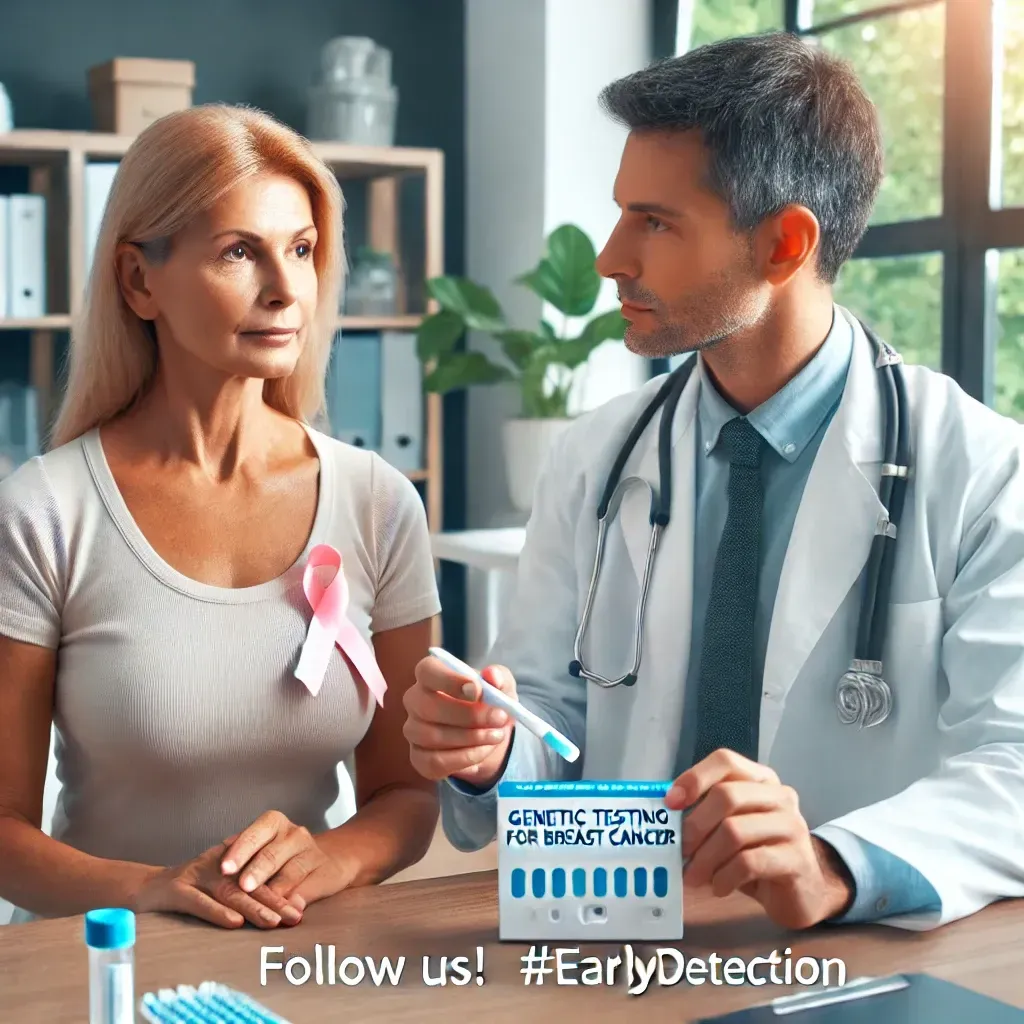
How Genetic Testing Can Help Detect Breast Cancer Early
How Genetic Testing Can Help Detect Breast Cancer Early
Breast cancer is one of the most common cancers among women, with millions diagnosed worldwide each year. Early detection is crucial in improving survival rates and outcomes. Genetic testing for BRCA1 and BRCA2 gene mutations can help identify individuals at higher risk of developing breast cancer, allowing for proactive measures and early intervention. Preventive health insurance can cover these life-saving tests, making them accessible to those who need them.
Understanding Genetic Testing: Genetic testing involves analyzing DNA to identify mutations in genes that can increase the risk of certain diseases, including breast cancer. BRCA1 and BRCA2 are two genes that, when mutated, significantly increase the risk of breast and ovarian cancers. Women with BRCA1 or BRCA2 mutations have a 45-65% chance of developing breast cancer by age 70, compared to about 12% for the general population.
The Benefits of Genetic Testing for Breast Cancer:
Risk Assessment: Genetic testing provides valuable information about an individual's risk of developing breast cancer. Those with BRCA1 or BRCA2 mutations can take proactive measures to manage their risk.
Early Detection: Knowing your genetic risk can lead to more frequent and earlier screenings, increasing the chances of detecting breast cancer at an early, more treatable stage.
Preventive Measures: Individuals with high genetic risk can consider preventive measures such as lifestyle changes, medication, or even prophylactic surgeries to reduce their risk of developing cancer.
Family Planning: Genetic testing can also inform family members about their potential risk, allowing them to make informed decisions about their health and screenings.
Preventive Health Insurance Coverage: Preventive health insurance is designed to cover services that prevent illnesses or detect them early when treatment is most likely to work best. Most preventive health insurance plans cover genetic testing for BRCA1 and BRCA2 mutations for individuals with a family history of breast or ovarian cancer. This coverage makes it easier for high-risk individuals to access the tests they need.
Managing Breast Cancer Risk: Once a BRCA1 or BRCA2 mutation is identified, several steps can be taken to manage the risk and reduce the likelihood of developing breast cancer. These steps include increased surveillance, lifestyle changes, medication, and preventive surgeries.
Increased Surveillance:
Frequent Screenings: Women with BRCA1 or BRCA2 mutations should have more frequent breast cancer screenings, including mammograms and MRI scans, starting at an earlier age.
Clinical Exams: Regular clinical breast exams by a healthcare provider can help detect any changes or abnormalities early.
Lifestyle Changes:
Healthy Diet: A diet rich in fruits, vegetables, whole grains, and lean proteins can support overall health and reduce cancer risk.
Exercise: Regular physical activity can help maintain a healthy weight and reduce the risk of breast cancer.
Limit Alcohol: Reducing alcohol intake can lower the risk of breast cancer. It's recommended to limit alcohol consumption to no more than one drink per day.
Avoid Smoking: Smoking increases the risk of many cancers, including breast cancer. Quitting smoking can improve overall health and reduce cancer risk.
Medication:
Chemoprevention: Certain medications, such as tamoxifen and raloxifene, can reduce the risk of breast cancer in high-risk individuals. These medications are typically recommended for women with BRCA1 or BRCA2 mutations.
Preventive Surgeries:
Prophylactic Mastectomy: Some high-risk women choose to undergo prophylactic mastectomy, which involves the removal of one or both breasts to significantly reduce the risk of breast cancer.
Prophylactic Oophorectomy: Removal of the ovaries and fallopian tubes can reduce the risk of both ovarian and breast cancer in women with BRCA1 or BRCA2 mutations.
Genetic testing for BRCA1 and BRCA2 mutations is a valuable tool in the early detection and prevention of breast cancer. By identifying individuals at high risk, genetic testing allows for proactive measures and early intervention, improving survival rates and outcomes. Preventive health insurance plays a crucial role in covering these life-saving tests, making them accessible to those who need them. If you have a family history of breast or ovarian cancer, consider genetic testing to assess your risk and take control of your health.
Follow us for more information on managing and preventing chronic diseases. #BreastCancerAwareness #PreventiveHealth



